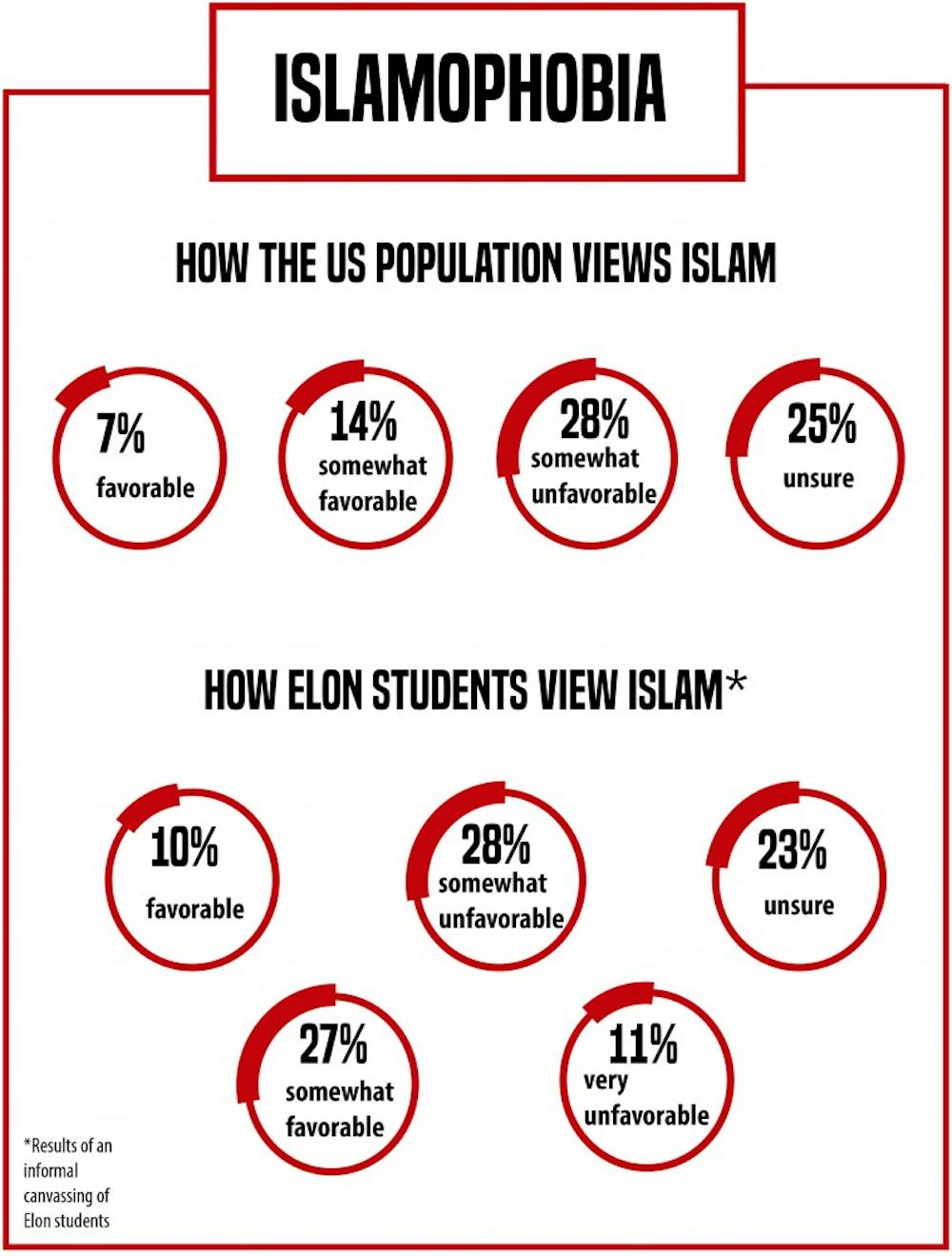Within an hour of the March 22 Brussels attacks, #StopIslam started trending on Twitter. The trend reflected a larger societal issue in which innocent Muslims are targeted for the actions of a radicalized minority.
The attack on Brussels was the third recent major terrorist attack on nations in the Western Hemisphere, following the Nov. 13 Paris and Dec. 2 San Bernardino attacks.
But many members within the U.S. Muslim community were prepared for such a phenomenon after the 9/11 attacks carried out by al-Qaida.
Elon University Muslim Life Coordinator Anna Torres-Zeb is a Mexican-American woman who converted to Islam in her teens. Today, she urges people to use rational judgment before painting the entire Muslim world with a single brush.
“You can’t apply the beliefs and actions of ISIS to one-third of the world’s population,” Torres-Zeb said. “And for people that do so, you have to challenge their belief because one-third of the world’s people are obviously not like ISIS in any way.”
In a 2015 Huffington Post survey of 1,000 U.S. adults, 7 percent indicated they had a very favorable view of Islam while 14 percent had a somewhat favorable perspective, 28 percent had somewhat unfavorable views and 27 percent had very unfavorable views. Twenty-five percent were not sure.
Using similar questions to reveal potential answers within the Elon student community, an informal canvassing yielded more positive results than those of The Huffington Post.
Of the 78 students surveyed, around 10 percent said they had very favorable views of Islam. Nearly 27 percent responded somewhat favorable, 28 percent somewhat unfavorable and about 11 percent very unfavorable. Twenty-three percent said they were not sure.
Torres-Zeb, while unsurprised by the numbers, said she feels Elon students have a negative outlook on the Muslim community’s religious beliefs because a lack of exposure to Muslim individuals in their daily life.
“It’s fair to say that many Elon students have probably never even met a Muslim person, and then established a personal relationship with that person,” Torres-Zeb said. “Knowing and caring for a person who is of a different background is essential to breaking down preconceived beliefs. Exposure is the key.”
Torres-Zeb said she blames the media for Muslim animosity in the Western Hemisphere.
“No one is born knowing anything about anything,” said Torres-Zeb. “And at the same time, no one’s born afraid of other people. They learn to be from what they hear and see, and it’s an unfair portrayal.”
University Chaplain Jan Fuller worries positive messages about the Muslim faith are being met with deaf ears.
Fuller said one of the biggest obstacles to equality and a better understanding of different cultures is education. She said one of her biggest struggles is incentivizing the naysayers on campus to take learning into their own hands.
“We can offer programming all day long, but if people don’t want to hear the message or are unwilling to educate themselves because of their own preconceived certainties, it’s really hard to make an impact,” Fuller said. “There are even faculty and staff in various fields that have made up their minds on the matter.”


